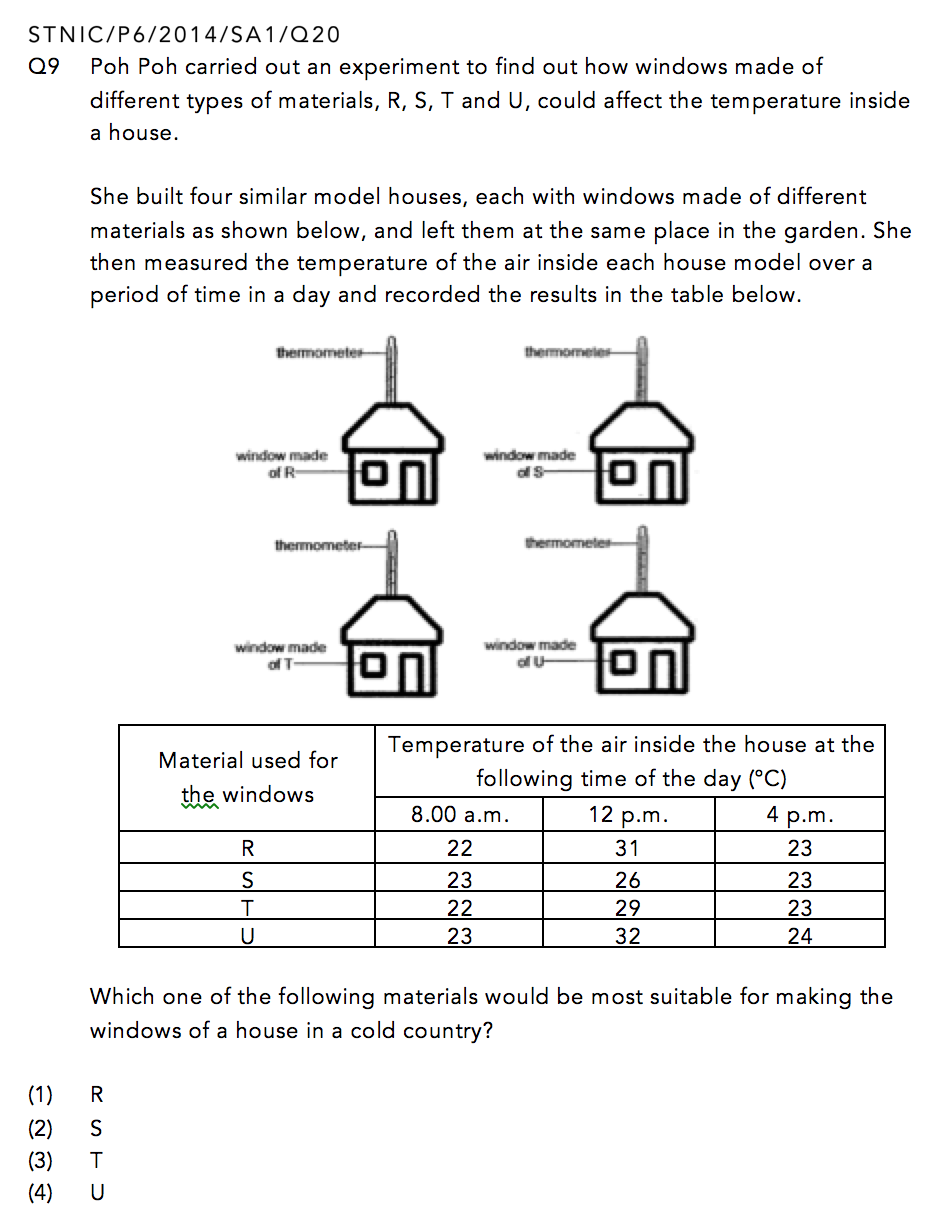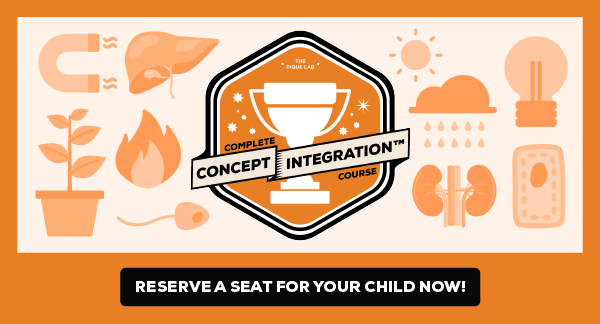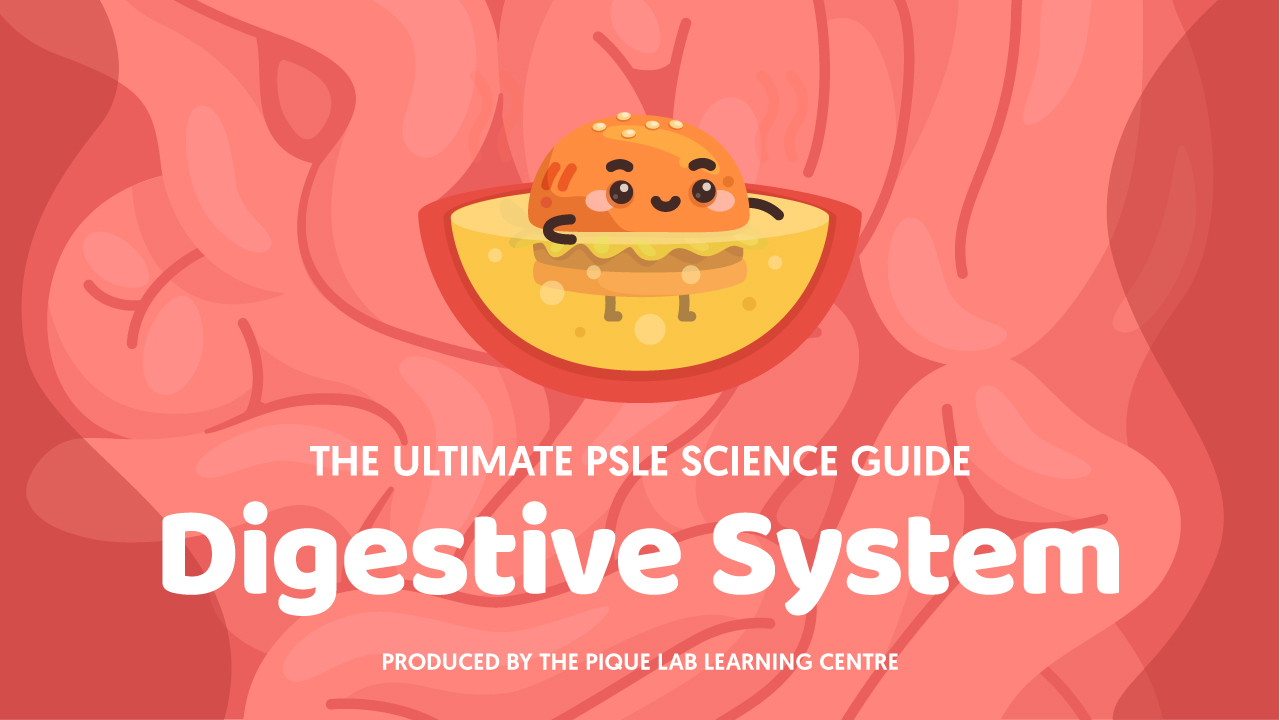In today’s article, I’ll be showing you how to answer a question on Heat Energy using the CUE method, which can be applied to both multiple-choice questions (MCQs) and open-ended questions (OEQs).
Read Also

Source: St. Nicholas’ Girls School – 2014 P6 SA1 Science Examination Paper [Q20]
Background
Poh Poh carried out an experiment to find out how windows made of different materials, R, S, T, and U, could affect the temperature inside the house.
She built four similar model houses, each with windows made of different materials as shown below, and left them at the same place in the garden. She then measured the temperature of the air inside each house model over a period of time in a day and recorded the results in the table below.
Question
Which one of the following materials would be most suitable for making the windows of a house in a cold country?
Thought Process
In order to answer this question, we have to first understand the requirements of the materials needed to make the windows of a house in a cold country. When the temperature outside the house is low, the house should be kept warm in order to shield the occupants from the cold. Hence, the material chosen must be the poorest conductor of heat, which will reduce the most amount of heat loss from the house to the colder surroundings.
Once we understand the underlying concept tested in this question, we can then use the CUE method to structure the answer.
Using The CUE Method
Over at The Pique Lab, we teach our students to apply the CUE method when tackling such questions.
C – Choose
U – Use Data
E – Explain Data
C (Choose): Material S
U (Use Data): The change in temperature of air inside the house at different times of the day was the LEAST.
E (Explain Data): This shows that material S is the POOREST conductor of heat and would reduce the rate of heat loss from the house to the surroundings in a cold country MOST effectively, keeping the house the WARMEST.
Hence, the answer is Option 2.
I hope that this article has shown you how to apply the CUE method and hope that it helps you when tackling similar questions!

If you like our methodology, we’ve some upcoming workshops:







